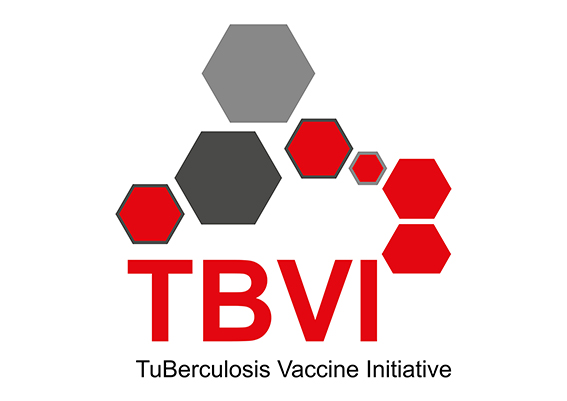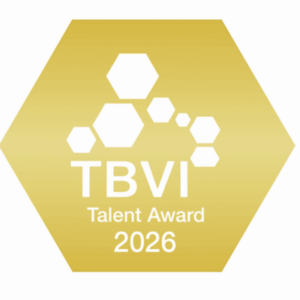Announcement Awardees | TBVI Awards 2026
The TBVI Award aims to encourage promising scientists by recognising their outstanding contributions to tuberculosis (TB) vaccine research and development. It offers them a platform to showcase their work at the TBVI symposium, taking place on January 27-28, 2026, in the picturesque Les Diablerets, Switzerland. This annual meeting is designed for knowledge exchange and the promotion of new initiatives, bringing together researchers, policymakers, and funders from around the world.
It is our pleasure to announce the three winners of the TBVI Award 2026:
 Nafsika Panagiotopoulou, Statens Serum Institut (SSI). Nafsika completed her PhD at SII in the TB Vaccine Research group led by Rasmus Mortensen, where she explored how vaccination shapes T cell homing and positioning during Mycobacterium tuberculosis infection. She is now continuing her research as a postdoctoral fellow in the same group, focusing on how vaccination can overcome spatial and functional barriers that limit CD4 T cell-mediated protection against Mtb. Her work integrates advanced imaging and spatial analysis to unravel immune cell interactions within granulomas, contributing to a deeper understanding of the mechanisms underlying protective immunity.
Nafsika Panagiotopoulou, Statens Serum Institut (SSI). Nafsika completed her PhD at SII in the TB Vaccine Research group led by Rasmus Mortensen, where she explored how vaccination shapes T cell homing and positioning during Mycobacterium tuberculosis infection. She is now continuing her research as a postdoctoral fellow in the same group, focusing on how vaccination can overcome spatial and functional barriers that limit CD4 T cell-mediated protection against Mtb. Her work integrates advanced imaging and spatial analysis to unravel immune cell interactions within granulomas, contributing to a deeper understanding of the mechanisms underlying protective immunity.
 Shuailin Li, University of Oxford. Shuailin is a postdoctoral researcher in Prof. Helen McShane’s laboratory. During his DPhil (Clinical Medicine), supervised by Prof. Helen McShane, Dr. Iman Satti and Dr. Elena Stylianou, Shuailin investigated immune mechanisms of protection and susceptibility to mycobacterial infection using human and animal models. This included identifying immune correlates of risk of Mycobacterium tuberculosis (M.tb) infection using samples from the MVA85A efficacy trial, elucidating mechanisms that contribute to the increased risk of TB disease and M.tb infection in CMV-infected infants using in vitro and animal mycobacterial infection models, and applying single-cell RNA-sequencing (scRNA-seq) alongside bulk T cell receptor sequencing (TCR-seq) to characterise lung mucosal and systemic immune responses to aerosolised Mycobacterium bovis BCG challenge. Within the TB046 study, supported by TBVAC HORIZON, Shuailin is now defining how route of BCG re-vaccination shapes immunity in historically BCG-vaccinated individuals using scRNA-seq and TCR-seq. In parallel, he is developing a high-throughput epitope screening platform to identify epitopes targeted by mycobacteria-specific TCRs following aerosolised human BCG challenge. Together, the primary goal of his research is to identify correlates of protection and epitope targets to guide the design of next-generation TB vaccines.
Shuailin Li, University of Oxford. Shuailin is a postdoctoral researcher in Prof. Helen McShane’s laboratory. During his DPhil (Clinical Medicine), supervised by Prof. Helen McShane, Dr. Iman Satti and Dr. Elena Stylianou, Shuailin investigated immune mechanisms of protection and susceptibility to mycobacterial infection using human and animal models. This included identifying immune correlates of risk of Mycobacterium tuberculosis (M.tb) infection using samples from the MVA85A efficacy trial, elucidating mechanisms that contribute to the increased risk of TB disease and M.tb infection in CMV-infected infants using in vitro and animal mycobacterial infection models, and applying single-cell RNA-sequencing (scRNA-seq) alongside bulk T cell receptor sequencing (TCR-seq) to characterise lung mucosal and systemic immune responses to aerosolised Mycobacterium bovis BCG challenge. Within the TB046 study, supported by TBVAC HORIZON, Shuailin is now defining how route of BCG re-vaccination shapes immunity in historically BCG-vaccinated individuals using scRNA-seq and TCR-seq. In parallel, he is developing a high-throughput epitope screening platform to identify epitopes targeted by mycobacteria-specific TCRs following aerosolised human BCG challenge. Together, the primary goal of his research is to identify correlates of protection and epitope targets to guide the design of next-generation TB vaccines.
 Rebecca Clark, London School of Hygiene and Tropical Medicine (LSHTM). Rebecca is a postdoc in the TB Modelling Group at LSHTM, where she works as an Assistant Professor with Prof Richard White. Rebecca completed her PhD in Infectious Disease Epidemiology at LSHTM in 2023. During her PhD she developed mathematical models to inform the health and economic impact of global, national, and subnational TB vaccine rollout. She received an MSc in Epidemiology in 2019 from the University of Alberta, and a BSc (Honours) in Biology and Mathematics in 2016 from McMaster University. Rebecca is interested in using mathematical modelling to help reduce the burden of TB, and her research primarily focuses on generating evidence to demonstrate the public health impact of TB vaccines to prepare for implementation. She produced results for the WHO Investment Case for New TB Vaccines, and to support the inclusion of TB vaccines in the 2024 Gavi Vaccine Investment Strategy. Rebecca’s current projects include estimating the impact of novel vaccine candidates in low and middle income countries, working with researchers in Brazil, Indonesia and South Africa to assess likely population acceptability of new TB vaccines to inform vaccine coverage and scale-up estimates used for modelling, as well as evaluating vaccine prevention across the spectrum of disease and its importance for population level impact.
Rebecca Clark, London School of Hygiene and Tropical Medicine (LSHTM). Rebecca is a postdoc in the TB Modelling Group at LSHTM, where she works as an Assistant Professor with Prof Richard White. Rebecca completed her PhD in Infectious Disease Epidemiology at LSHTM in 2023. During her PhD she developed mathematical models to inform the health and economic impact of global, national, and subnational TB vaccine rollout. She received an MSc in Epidemiology in 2019 from the University of Alberta, and a BSc (Honours) in Biology and Mathematics in 2016 from McMaster University. Rebecca is interested in using mathematical modelling to help reduce the burden of TB, and her research primarily focuses on generating evidence to demonstrate the public health impact of TB vaccines to prepare for implementation. She produced results for the WHO Investment Case for New TB Vaccines, and to support the inclusion of TB vaccines in the 2024 Gavi Vaccine Investment Strategy. Rebecca’s current projects include estimating the impact of novel vaccine candidates in low and middle income countries, working with researchers in Brazil, Indonesia and South Africa to assess likely population acceptability of new TB vaccines to inform vaccine coverage and scale-up estimates used for modelling, as well as evaluating vaccine prevention across the spectrum of disease and its importance for population level impact.
All three awardees are outstanding early-career scientists with ambitious goals in the field of TB vaccine research and development. This award provides them the opportunity to present their work and engage in discussions with researchers, developers, funders, and policymakers. The aim is to advance their careers as the next generation of researchers who will contribute to the discovery, development, and implementation of new safe, effective, and affordable TB vaccines. TBVI congratulates all the awardees and looks forward to collaborating with them!


